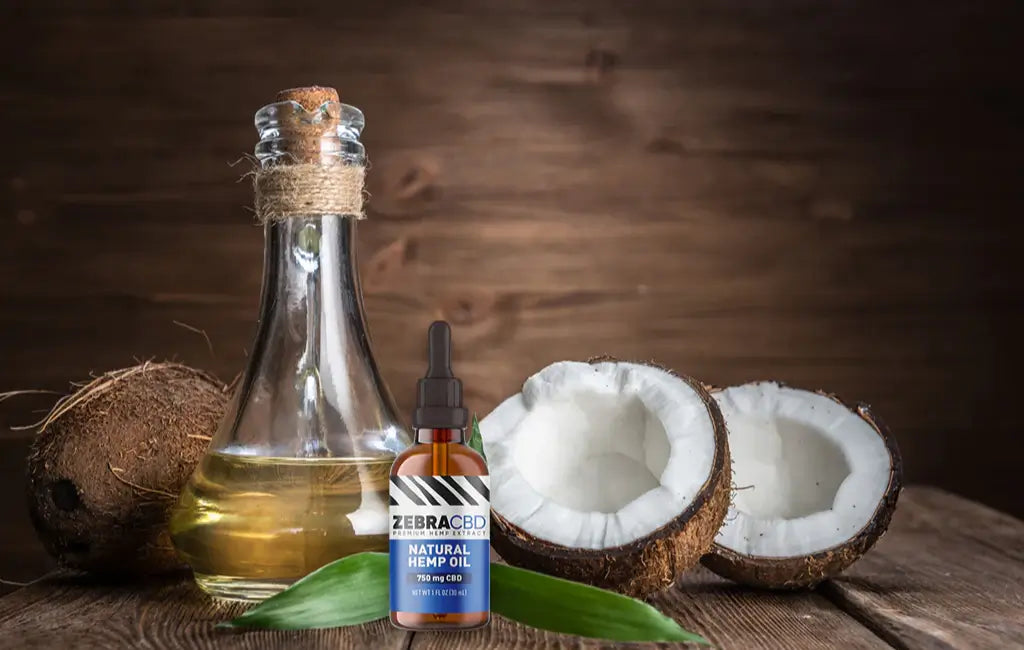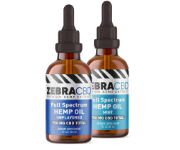
You may not be aware that CBD products are diluted with some type of plant-based fat known as a carrier oil.
A carrier oil is simply what the name implies: An oil that acts as a vehicle to help deliver the active compound. Much as base is added to perfume to carry the scent, CBD requires an oil to deliver it to your body in an effective and efficient way.
Using hemp seed oil as a carrier oil may allow the oil and the CBD to work together more effectively.
The importance of carrier oils for CBD products often gets drowned out with the buzz surrounding the benefits of the CBD itself. While it’s important to know how the CBD is sourced and processed, it’s equally important to ensure the carrier oil is top notch.
Carrier Oils and CBD Bioavailability
CBD loves fats; in fact, it requires the presence of fat for absorption. Although fat gets a bad reputation sometimes, it is a necessary part of a healthy diet. At least 20% of your daily calories should come from fat.
Because of their fat content, carrier oils enhance the bioavailability of the CBD product. This means they help your body absorb and utilize the CBD. Additionally, carrier oils naturally preserve CBD to ensure the product remains shelf stable and effective from the moment it’s opened until the last drop is used.
MCT oil. This is widely considered one of the best carrier oils for CBD. MCT stands for "medium chain triglycerides," meaning the compound is made of carbon molecule chains that are neither very short nor very long. Triglycerides are the most common fats in the human body.
The unique chemical structure of MCT oil allows for it to be metabolized directly by the liver, which enhances the bioavailability of the CBD. Coconut oil, palm kernel oil and dairy products contain MCTs, which have also been shown to have benefits of their own, including antibacterial properties, skin health and cognitive enhancement. Moreover, MCT oil adds very little (if any) flavor and has no odor, making it perfect for use in tinctures.
Hemp seed oil. Hemp seed oil has many health benefits as it is loaded with an abundance of important nutrients. It is rich in omega 3 and omega 6 fatty acids. It has been shown to reduce inflammation, and can promote overall heart health.
Because hemp seed oil and CBD are both derivatives of the hemp plant, using it as a carrier oil may allow the oil and the CBD to work together more effectively. Hemp seed oil, however, is lower in saturated fat than MCT oil, making the absorption rate less than ideal. Additionally, hemp seed oil has a shorter shelf life than some of the other carrier oils and may require refrigeration.
Olive Oil. This is a viable option for people looking for an inflammation reducer, or for those who have sensitivities to MCT oil. Olive oil is well known for its benefits in the world of nutrition, as it is rich in antioxidants and has many heart-healthy properties.
The fat in olive oil is mainly from monounsaturated fat, which may benefit your heart but may also hinder CBD absorption. The larger fat molecules found in olive oil require more processing within the body, which may reduce the amount of CBD absorbed.
Avocado oil. Because of its low saturated fat content, avocado oil is not as easily absorbed as other carrier oils. However, similar to olive oil, avocado oil is praised throughout the nutrition community for its beneficial nutritional properties. Avocado oil is high in monounsaturated fats, which can protect your health; it also provides an array of vitamins and minerals.
Clearly, not all carrier oils are created equal. And because they have a direct impact on how much therapeutic benefit you will experience from using CBD oil, it’s important to be aware of the benefits and drawbacks of various carrier oils so you can make an informed purchase.









